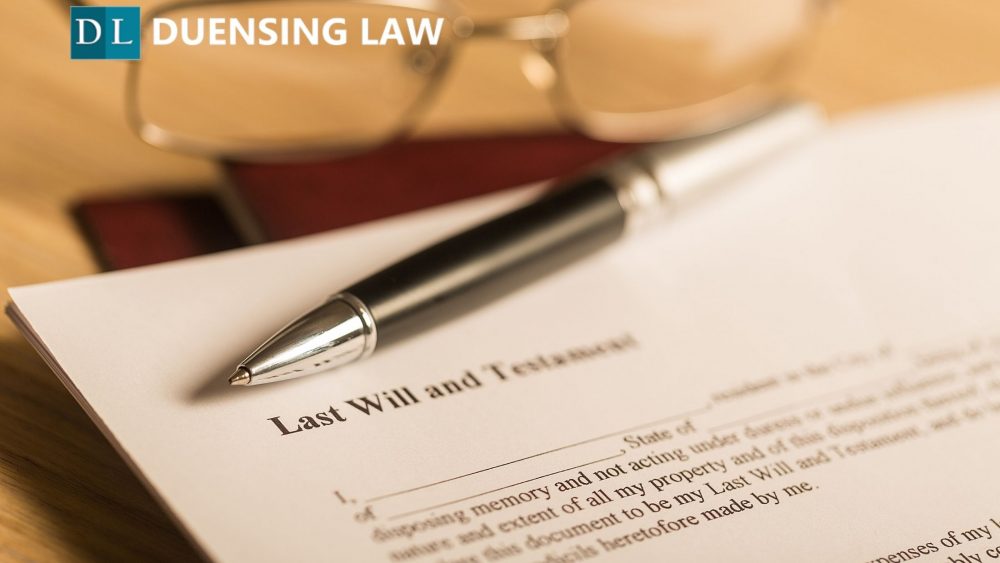In the instance of a death, you want the ideal person to handle your remaining financial assets and wealth with care and responsibility. This person is your executor and is usually someone you trust the most to fairly distribute your resources to people named in your will. While someone may name a sole executor to be responsible for handling this process, multiple executors are appointed in some cases. Although this may be beneficial for some parties, it largely complicates the job of your Wills lawyer in Toronto and makes it more difficult for you to handle. Moreover, you may also risk increasing your wills lawyer’s fee when everything has been settled.
We will examine why multiple executors are named to a will and the benefits and outcomes of doing so. It is still best if only one executor is made in charge of your will to avoid unnecessary conflicts and we will break down the process of removing them from the will. Ultimately, you want a reliable person to properly handle the distribution of your remaining wealth.
Why Multiple Executors Are Made Responsible for A Will
In most situations, a sole executor is made responsible for your Will to administer your estate in the instance of your death. However, this can be a stressful burden to some, and so multiple executors are tasked with administering your Will to relieve some of the pressure. This co-executors all share the responsibility of managing the estate and can be your spouse, family, close friend, or a trusted business partner.
You can dictate how they will fulfill their roles in your Will and can task them to pay off debts, manage estate assets, and oversee proper distribution to named heirs. Co-executors can make sure your estate assets and concerns are addressed, but this can also lead to internal conflict that will delay or inconvenience the people involved.
Advantages & Disadvantages of Adding Multiple Executors
Some of the advantages of naming multiple executors to a Will include the fair division of work between them, tasking specific people with their strengths and skills to administer the estate’s assets, and relieving the responsibility from one person, giving you more peace of mind.
However, the disadvantages of multiple executors outweigh its potential benefits. A big reason for this remains that different executors can find problems with each other. It can stem from general disagreements on how the estate is administered to co-executors feeling they’re doing all the work or none at all. Furthermore, co-executors are legally responsible for each other, so if one co-executor is not legally entitled to wealth that they used, the other co-executor is jointly liable.
Other issues that might arise would be a person not knowing what they are in charge of or an executor simply refusing to cooperate. It can also be more frustrating if you have to get a legal document signed by all co-executors because they may not all be living close by.
Conflict Between Two Executors
When co-executors disagree, it can lead to many problems and delays in estate administration. Resolving these disagreements can be extra challenging when you consider that the law cannot enforce or forcibly remove an executor from the will. You must be able to prove a co-executor has neglected their duties and acted dishonestly towards the other co-executors or the estate. As we will detail later on, there are several ways to remove a co-executor from a will.
For disagreements between co-executors, some common issues that are brought up range from conflict involving the handling of assets, disagreements on the value of assets, and the misappropriation of funds. Additionally, who sells or buys different assets can also be a sticking point that runs down to a difference in opinions.
Overall, many issues can come up from naming multiple co-executors for your will, so it may be easier for everyone if one person is put in charge.
In particular, if you know that the individuals you want to act as co-executors do not get along, you should not force them to work together hoping that it will help them to work out their differences. It will not work and your beneficiaries will suffer.
Removing a Co-Executor From the Will
In the matter of removing a co-executor, there are three ways you can approach it:
- The Testator: The testator is essentially the creator of the will who can remove someone from their administration duties. This is the most straightforward approach to handling the removal, but maybe too late to do in some cases.
- Resignation. A co-executor may resign if they think they do not help administer the estate. They would sign a renunciation of their duties and file it with a probate court.
- Court Removal. A judge may remove a co-executor from their duties if they believe the arguments from the other co-executors. The heir to the will may also ask for their removal if they believe the co-executor has not acted in their best interests.
Contact an experienced wills lawyer today to help structure your succession planning. Call Duensing Law at (416)-601-4769 or email matt@duensinglaw.com.



Comments are closed.